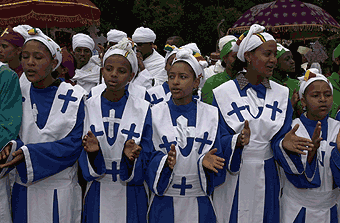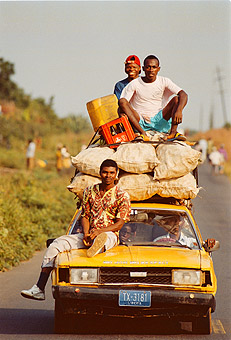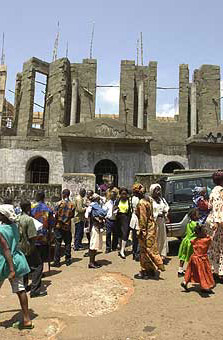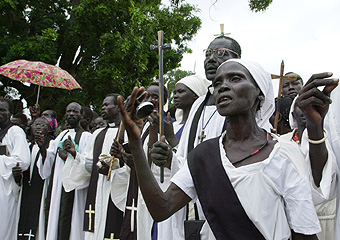
africa desk - profile of the region
for
more information, contact:
|
Africa is a large continent: large enough to accomodate Argentina, China, Europe, India, New Zealand, and the USA together, yet with less than a billion inhabitants. The population of the whole continent is 819.9 million. The continent's most populous country is Nigeria (with 108 million inhabitants). Government spending on health and education is 6.7% of GDP in in Africa as a whole. Africa's size is matched by its diversity of cultures and languages. This, plus a lack of communication infrastructures, limits continent-wide initiatives. It is at the regional or sub-regional levels that exchange of ideas and people can happen. Of the 53 countries in Africa, Christianity is the majority religion in 18 of them, Islam in 14, and traditional faiths in 5; in 14 other countries no religion is in a majority position. 31 African countries have a WCC member church; there are 89 WCC member churches in Africa, of whom 8 are associate member churches. A continent of struggle and hope While Africa in crisis is well known, the Africa that is busy seeking to transform herself is less well-known. Africa's efforts at economic, political, and technological transformation include the Lagos Plan of Action (1980), the African Alternative Framework to Structural Adjustment Programmes (1989) - two examples the West and especially the World bank/IMF have replaced with their own alternative mechanisms, that have failed! The most recent African-led initiative is a "New Partnership for Africa's Development" (NEPAD) which again is under scrutiny by the rich countries.
|
|
Africa is alone, and will sink or swim in a globalized world. This message from the WCC Assembly in Harare in 1998 led to a Special Focus on Africa in WCC work. Africa will need accompaniers on its journey of hope. Strengthening partnerships and capacity are the twin tasks of the WCC Africa Desk.
Main geopolitical issues
Major ecumenical issues
The formation of ecumenical fellowships of churches and councils of churches at the sub-regional level is a realistic response to Africa's diversities and the communication infrastructure difficulties mentioned above.
| |
|
|
|
|
|
|
|
|







